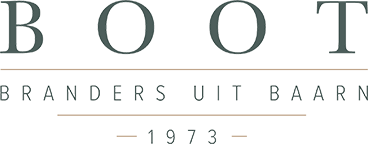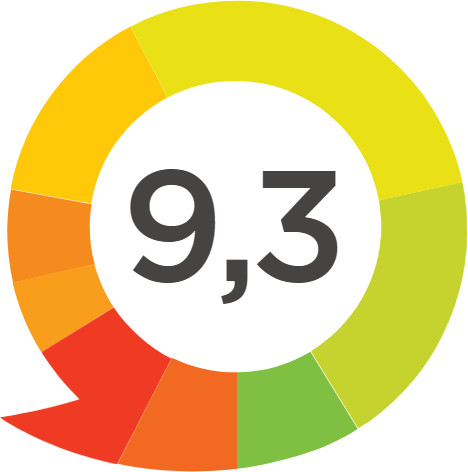- Free shipping in NL from €45
- Order before 12 PM, shipped same business day
- International shipping

Coffee travel
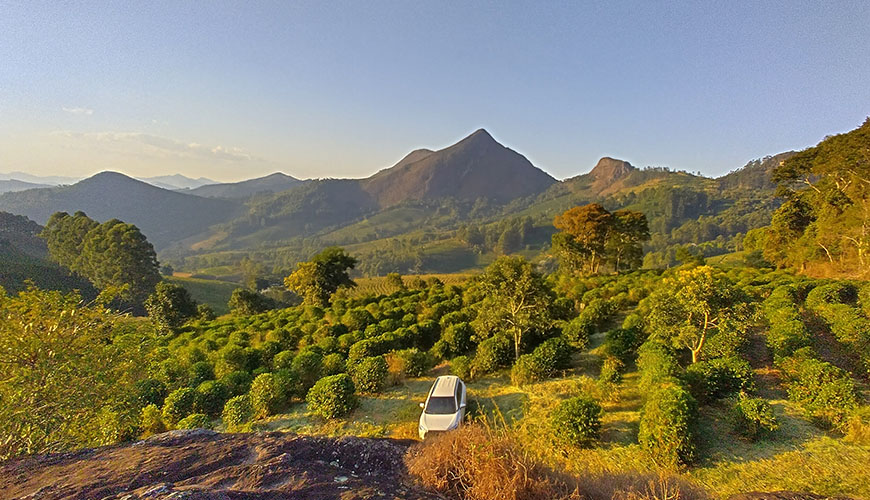
A huge amount of coffee is grown in Brazil. The country is the largest coffee producer in the world. At 59 million 60-kilo bales, the last harvest was a lot higher than the previous harvest. So you would say: plenty of coffee. But Brazil is now also experiencing a major drought. There has been 60% less rainfall. That drought is disrupting the development of coffee bushes and berries for the upcoming harvest.
Our buyer (and quality controller) Rick visited the Sao Francisco Bela Vista Fazenda a good month ago. ("fazenda" means farm). This coffee plantation is where our Brazil Santos Espresso is grown. And here too, the consequence of the drought is very visible.
The purpose of this trip for BOOT is to get an up-to-date picture of how quality and sustainability are being promoted. Of course, we will also be there to taste some lots from the new harvest.
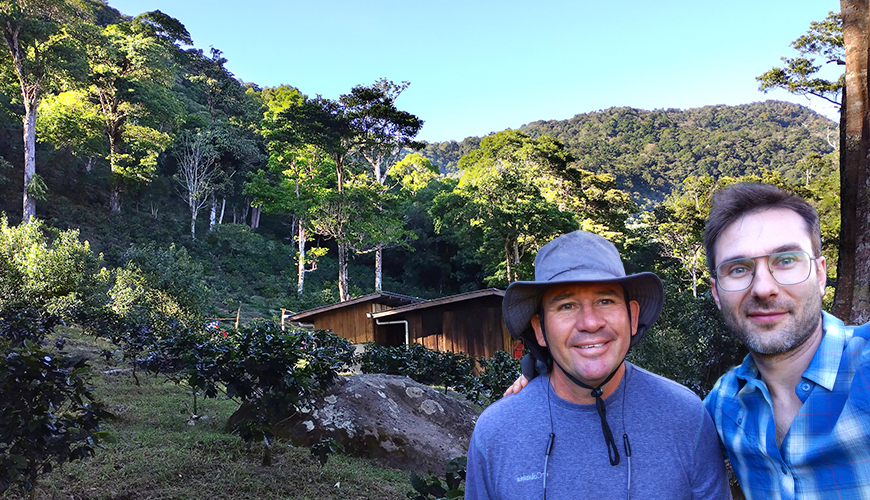
The next day I went cupping with the Hartmann family. They were really very enthusiastic so we scheduled 3 rounds. Of course I didn't say no to a 4th round either. Who wouldn't want to taste Hartmann Mi Finquita coffees!
In the end, I tasted a total of 30 Hartmann coffees and 8 Mi Finquita coffees, making an impressive total of 38 coffees.
During this cupping we really tasted all sorts of things mixed together. From Geisha to Caturra, from Maragogype to natural, washed and so on. The tasting is done with a cupping spoon and blind, so I didn't know which variety was in front of me either. Each coffee has a number and the experience is noted. You are only told afterwards which coffee belongs to that number, so you are never biased. At one point I tasted a coffee that, to me, stood out tremendously.
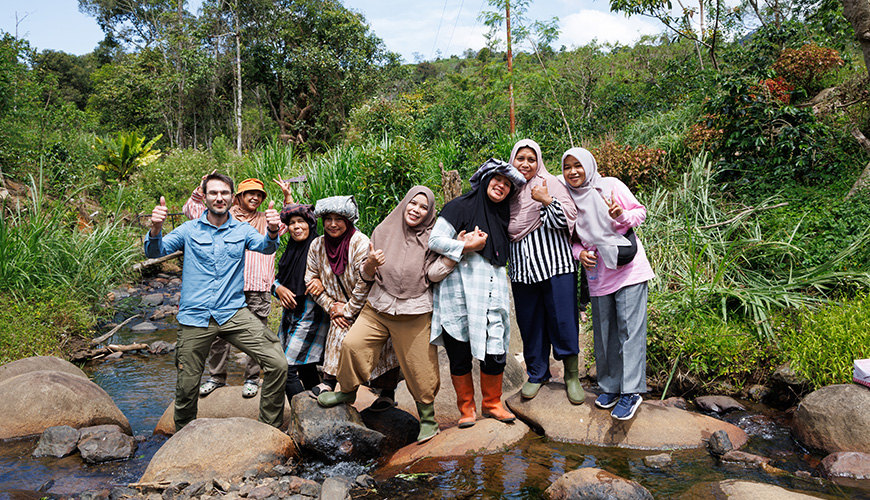
Rick and Esther visited Kopepi Ketiara in Takengon, Sumatra. Sumatra is Indonesia's largest island. An island with a whimsical history and enormous natural wealth ranging from mountain scenery, volcanoes, swamps and rainforests to waterfalls and lakes. Almost the entire island is Islamic, with strict Islamic sharia law in Aceh province.
Ketiara cooperative was founded in 2008 by chairwoman Rahmah, which is unusual in Medan. There are about 1,100 cooperative members, 70% of whom are female.
Ketiara has earned a well-earned reputation as a producer of excellent Fairtrade...
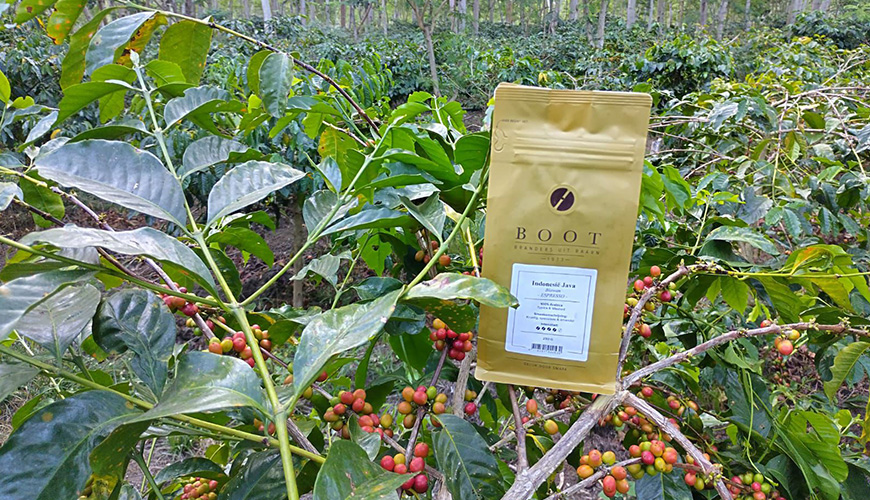
Currently our Rick Maas is on a coffee tour in Indonesia. The first part of the trip took him to the island of Java (central, east and west), where he visited three projects, among others. Java is known for its fertile volcanic soil, which is ideal for growing coffee. Rick is looking for new cooperation opportunities, harvests and coffee varieties. At several plantations, small amounts of coffee are roasted in sample roasters to assess the flavors and judge the coffee. Working with coffee farmers and local contacts, Rick has tasted many wonderful natural and washed coffees.
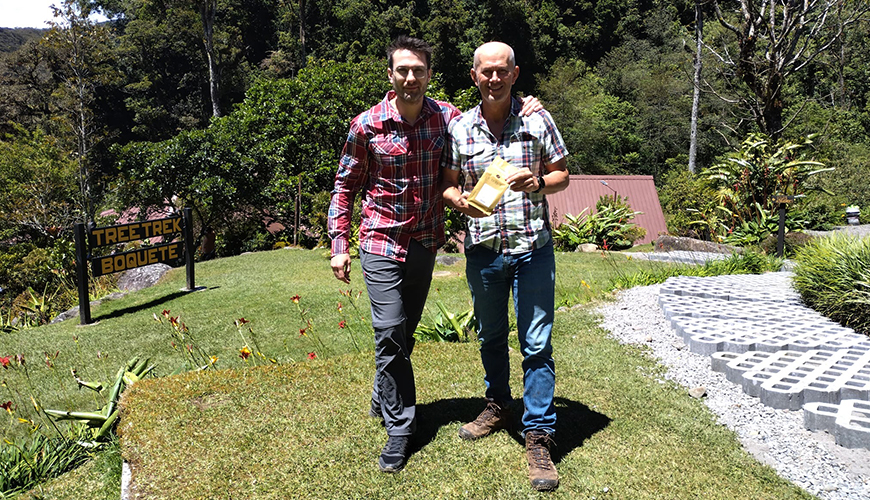
COFFEE VLOG FROM PANAMA - Coffee roaster Rick and coffee farmer Ricardo
Rick Maas is on the final leg of his coffee journey. He is currently visiting several plantations in Panama in his search for the finest coffees. There is also a lot of personal contact with the coffee farmers, pickers and families who live on and off the coffee plantations.
Fortunately, we all get to travel with him a little bit and Rick regularly sends fun and interesting video updates. Like this vlog with coffee farmer and entrepreneur Ricardo Koyner on his Kotowa plantation in Boquete, Panama. Among other things, our famous Panamaria Espresso and Filter comes from this plantation.
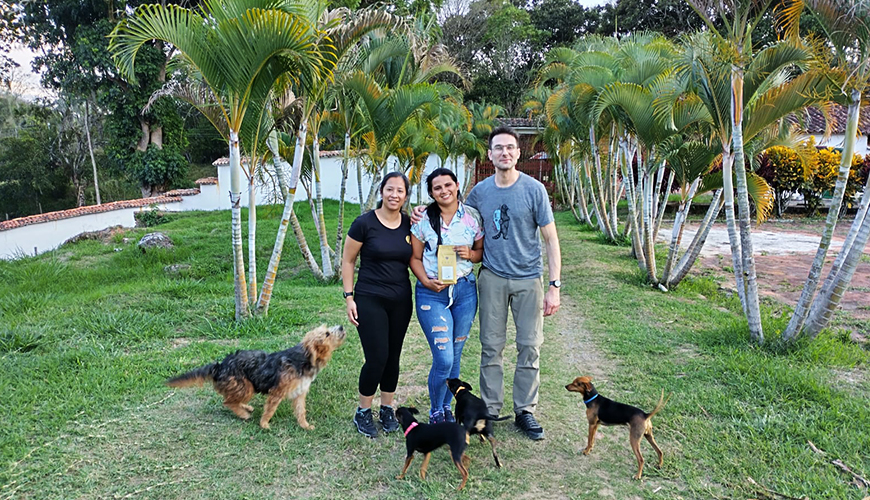
BOOT Coffee at Cooperativa De Caficultores Del Sur De Santander in Colombia
Visiting the coffee farmers of the Kachalu Project in the Santander region.
Our colleagues Rick Maas and Tuyet Tran left for Colombia last Monday. They traveled to the Santander region to visit 9 different plantations of the Kachalu Project. The purpose of this trip is to personally talk to the owners of these farms and to learn more about their working methods and the different processing methods. Focus is also on the financial situation of the farmers with the goal of gaining further insights and looking together at how to ensure the future sustainability of the plantations. When asked what the farmers' dreams and goals are, their answer is that at Kachalu they prioritize nature instead of increasing their yields by using non-organic fertilizers and pesticides to increase their production.


